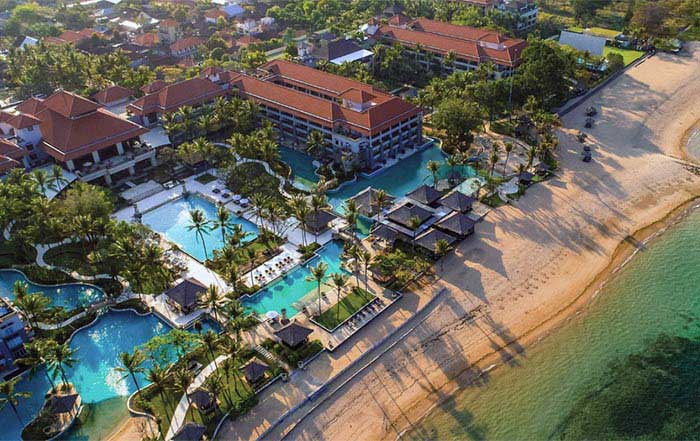When selecting accommodations, the primary consideration for business travelers is often location. This is understandable given the myriad responsibilities they must juggle during their trips. Business professionals must manage important presentations, attend scheduled meetings, and commute between destinations efficiently. Therefore, the proximity of their hotel to conference venues or convention centers becomes paramount. Staying close to these key locations minimizes travel time, allowing them to focus more on their work and less on logistics. For hotel owners, strategically positioning their properties near such business hubs and actively promoting these advantages can attract more business travelers, making it essential to advertise availability and rates prominently.
Connectivity: The Lifeline of Modern Business Travel
In today’s digital age, constant connectivity is crucial for business travelers. They need to participate in video meetings, access emails, and handle large files seamlessly. Fast and reliable WiFi is not just a luxury but a necessity for them. Many business travelers prefer hotels offering robust internet services and additional connectivity options. As a result, hotels investing in high-speed internet and efficient tech support often gain a competitive edge in attracting this clientele.
Loyalty Programs: Retaining the Business Traveler
Hotel loyalty programs significantly influence the decisions of business travelers. According to recent data, over 65% of business travelers participate in hotel loyalty programs. These programs offer benefits such as free upgrades and exclusive services, fostering a sense of value and appreciation. Consequently, business travelers tend to show higher loyalty to specific hotel brands compared to leisure travelers. For hotels, maintaining and enhancing these programs can lead to sustained patronage and positive word-of-mouth among business communities.
Essential Amenities: Catering to Professional Needs
Business travelers have distinct needs that differ from those of leisure travelers. They require amenities that help them prepare for work and unwind after a busy day. Morning essentials like coffee makers, continental breakfasts, and ironing facilities are vital. Additionally, amenities such as minibars, air conditioning, and fully equipped bathrooms contribute to their comfort and relaxation. Hotels that understand and cater to these requirements are more likely to secure repeat business from professional travelers.
Business vs Leisure Traveler Quiz
Price Sensitivity: The Domain of Leisure Travelers
Leisure travelers generally exhibit greater price sensitivity compared to business travelers. They prioritize finding the best deals and are more likely to choose accommodations based on cost rather than specific amenities. This is partly because their stays are often more about exploring the destination than utilizing the hotel facilities. A study by Google in 2014 highlighted that 63% of leisure travelers consider pricing as a crucial factor in their booking decisions. Hotels targeting this demographic must ensure their pricing strategies are competitive and transparent.
Importance of Reviews: Influencing Traveler Decisions
Both business and leisure travelers rely heavily on reviews when choosing hotels, although their reliance varies slightly. The Google Traveler Study noted that 82% of leisure travelers find reviews important, compared to 77% of business travelers. Negative reviews can significantly deter potential guests, making it crucial for hoteliers to address issues promptly and maintain a positive online presence. Engaging with customers through reviews and resolving complaints effectively can enhance a hotel’s reputation and attract more bookings.
Packages and Experiences: Attracting Leisure Travelers
Leisure travelers often seek comprehensive vacation experiences, including large events, walking tours, popular destinations, family-friendly activities, and romantic getaways. They appreciate hotels that offer additional amenities such as restaurants, fitness centers, and swimming pools. By providing attractive packages that include these features, hotels can cater to the diverse interests of leisure travelers, ensuring a memorable stay that encourages repeat visits.
Balancing Business and Leisure: Maximizing Travel Opportunities
Business travel doesn’t have to be all work and no play. Modern business travelers are increasingly looking to balance their professional responsibilities with leisure activities. They might explore local attractions, enjoy fine dining, or visit museums during their free time. Hotels that provide information and access to nearby attractions can enhance the travel experience for business professionals, helping them make the most of their trips.
Catering to Diverse Traveler Needs
The hospitality industry must recognize the distinct needs of business and leisure travelers to provide tailored services and amenities. Business travelers prioritize location, connectivity, and specific amenities that facilitate their work. Loyalty programs and reliable internet access play crucial roles in their hotel selection process. On the other hand, leisure travelers are more price-sensitive and seek comprehensive vacation experiences. Reviews and recommendations significantly influence both groups, emphasizing the importance of maintaining a positive online presence.
By understanding and addressing these different priorities, hotels can effectively attract and retain both business and leisure travelers. For business travelers, offering seamless connectivity, strategic locations, and loyalty rewards ensures their productivity and satisfaction. For leisure travelers, competitive pricing, attractive packages, and engaging experiences make their stays enjoyable and memorable. Balancing these diverse needs will position hotels to succeed in a competitive and ever-evolving market.
Ultimately, the success of any hotel lies in its ability to cater to the unique requirements of its guests, ensuring that every traveler, whether on business or leisure, feels valued and well-served. This adaptability and commitment to excellence are what will distinguish leading hotels in the industry.

